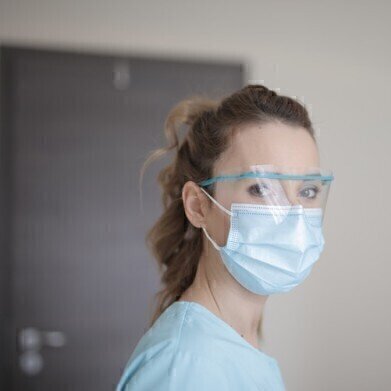Bioanalytical
How Can Serum Therapy Help with COVID-19? - Chromatography Explores
Jun 13 2020
COVID-19 has been the main story on everyone’s lips for the last few months. Whisperings of a new disease started to emerge in December 2019 as officials in Wuhan in China’s central Hubei province stated that they had dozens of new cases of pneumonia and they didn’t now the cause. From January 2020 when the outbreak was confirmed as a new type of coronavirus and the first cases outside of China were reported the disease has never been far from the headlines.
Almost as soon as the disease was announced a search for a cure or a vaccine has been chased. From President’s suggesting bleach and light to treat patients of COVID-9 to scientists and researchers dropping all other research to find a solution, the chase has been on to save the World’s population from the deadly disease. Could COVID-19 be treated using a therapy developed in the late nineteenth century? Let’s take a brief look at serum therapy and see how it might help treat COVID-19 patients.
What is serum therapy?
The search for a vaccine is seen as the best way to allow the world to return to normality as we seek a way to live with COVID-19. Because the reality is, we are going to have to find a way of living with the disease the same way that we live with influenza. Vaccines work by stimulating our immune system to make antibodies to a specific disease, this gives us immunity to that disease.
Serum therapy takes antibodies from the blood of recovered patients and transfers the antibodies in the blood’s serum into patients fighting a disease. This helps to bolster the defences of the patients fighting the disease. The technique of serum therapy was pioneered over a century ago and helped in the fight against diphtheria. Later, the technique was used to help patients suffering from polio before a vaccine for polio was found.
Can serum therapy help with COVID-19?
Serum therapy, also known as convalescent plasma therapy, is one of the many treatments that are being trialled as a potential treatment for COVID-19. People who have recovered from COVID-19 have antibodies to the disease in their blood. Blood taken from people who have recovered from a disease is known as convalescent plasma. By giving the plasma from this blood – the plasma is the liquid part of the blood – to patients struggling to fight off COVID-19, it is hoped to boost their ability to fight the disease.
Chromatography can platy a role in helping researchers to separate the blood and plasma samples ready for analysis to help scientists find out which antigens and antibodies are responsible for the illness and treatment. The optimization of chromatographic techniques is discussed in the article, The Theory and Advantages of Solid-Core Particles. Now the jury is still out on whether a hundred-year-old therapy can help treat COVID-19.
Events
Feb 03 2025 Dubai, UAE
Feb 05 2025 Guangzhou, China
Mar 01 2025 Boston, MA, USA
Mar 04 2025 Berlin, Germany
Mar 18 2025 Beijing, China













